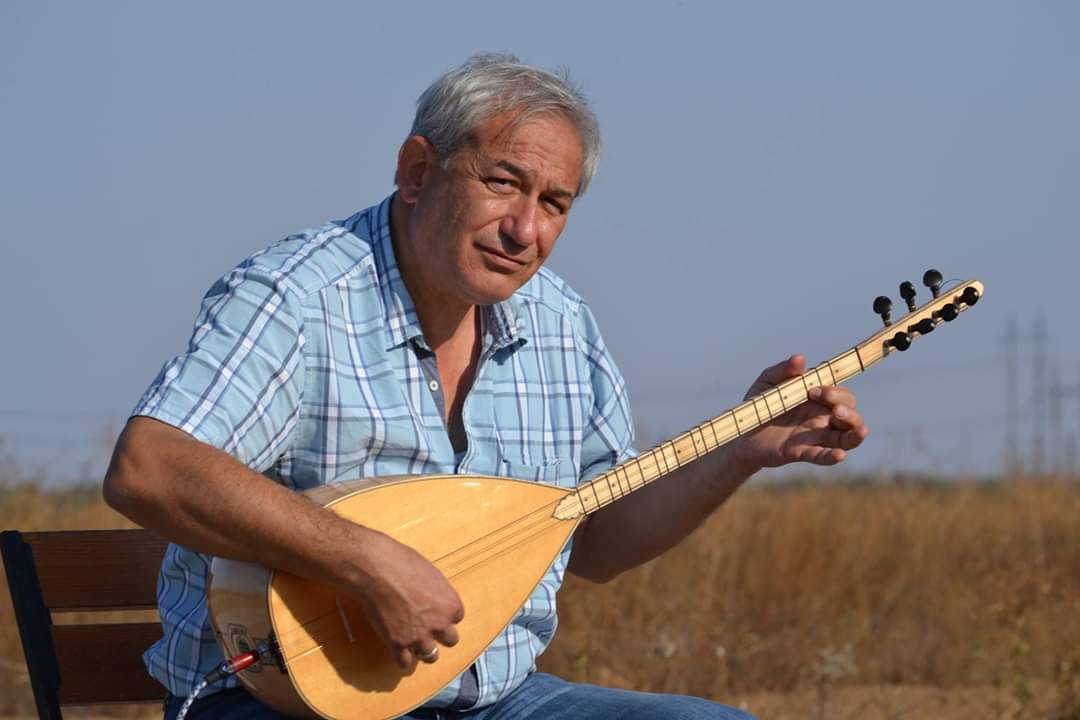How weddings helped to preserve the ethnic music of the Crimean Tatars during the time of deportation, what is the peculiarity of this culture, why they managed to revive it only in the 2000s, they talked with an ascetic of Crimean Tatar musical art, a talented composer and expert on the theory of Crimean Tatar music Dzhemil Karikov.
– What is the peculiarity of the Crimean Tatar music?
– It is a synthesis of eastern and western traditions. Probably, the very geographical location of Crimea contributed to this. In our Crimean Tatar culture, both Western and Eastern influence is felt. But this is all very organic, not artificial fusion of these traditions.
– Why did you manage to revive Crimean Tatar music only in the 2000s?
– This was due to objective reasons. With the historical collisions that our people have undergone. The deportation was not before the development in general, and not before the development, of course, of musical culture. Because there were no subjects related to Crimean Tatar music in any music school, not to mention music schools or conservatories. It was very difficult. Mostly the folklore part of our music has survived, thanks to the wedding musicians. Therefore, now we need to go forward by leaps and bounds. After returning to the Crimea, I realized that we need to start from the foundation. Just as any house does not stand without a strong foundation, so a musical culture must rely on a strong foundation. This is, first of all, our Crimean Tatar tradition. Without knowing the tradition, you cannot continue it, and, even more so, develop it. The music of the khan period is our professional music, which is also called palace music. This is the music that was written 100 years before Bach and Handel. And then the Crimean Tatars already possessed such unique and rather developed forms represented by such works as Peshraf, Takhsin and others. Unfortunately, several generations of Crimean Tatars were cut off from this heritage. At the end of the 20th and beginning of the 21st centuries, we returned to it again.
– How to lure Crimean Tatar youth towards Crimean Tatar culture and folklore now?
– You know, it’s not very appropriate to say “lure”. I have heard this more than once – they said that you need to apply some special techniques, as to say modern ones, in music. But this does not always work. It seems to me that the most crucial thing in any kind of art is not a novelty. Because the novelty in 5-10 years passes and becomes something ordinary. Probably the most important thing is sincerity. One must be sincere. When we listen to samples performed by the older generation, what bribes us? Most likely, their sincerity and faith in what they perform. This is probably the most important thing. You cannot hide the emptiness behind any modern technology.
– Do you feel like a happy person?
– I am happy that I am engaged in my musical culture. But this is a very thorny path. But at the same time, there is that unceasing pain that exists in the hearts of every Crimean Tatar person. You understand what I’m talking about and what I mean. Of course, it is better to live in your own country and create. But there were many examples in history when many artists were forced, for one reason or another, to live outside their homeland. You know, it happened historically that a lot of our people was forced to live outside their homeland and amounts to several million of such people. In the same Turkey, Bulgaria, Romania, America, Germany, Canada – we are very many around the world. If we could join forces … I often spoke about this after returning from places of deportation. I said: “Look, it’s clear that this is a tragedy of the people – that we are deported. But now, maybe we have a unique opportunity. We were resettled in different places; someone lived in the Urals, someone lived in Siberia, someone in Central Asia … If all the best that we have worked there we bring and accumulate in the Crimea, then we will have a flowering culture. ”
Jemil Karikov is 58 years old. He was born in Uzbekistan, where his parents were deported from Crimea. He returned to Crimea in 1991, settled with his family in Simferopol. Already then he wrote music for several performances that were played on the stage of the Crimean Tatar Theater. In the 90s, he founded the Maqam ensemble together with young musicians. A talented composer and expert on the theory of Crimean Tatar music Karikov has released several collections, which to this day is a source of valuable information for musicians. He managed to revive many ancient Crimean Tatar folk instruments: saz, kaval, tanbur, baglama and others. And also restore lost and forgotten songs. In 2015, Dzhemil Karikov worked as a music editor on the first Crimean Tatar television channel ATR. One of the composer’s brightest products is the popular Yırla, sazım program. In it, the best singers and musicians performed Crimean Tatar compositions.
Zaire AKADYROV





